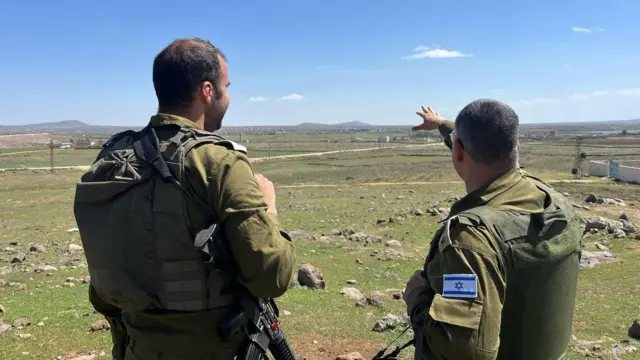Syrian and Israeli Officials Hold Direct Talks Amid Shifting Regional Dynamics
By Kardo Roj
DAMASCUS, Syria (North Press) – In a development that could signal a significant shift in regional diplomacy, Reuters reported Tuesday that Syrian and Israeli officials have engaged in direct talks in recent weeks, according to regional intelligence and diplomatic sources.
The meetings, confirmed by both Syrian and Western sources cited by Reuters, reportedly follow covert communication through intermediaries since the ousting of President Bashar al-Assad in December 2024. This marks the first known instance of face-to-face discussions between the two sides in years, aimed primarily at de-escalating tensions along the contested southern frontier.
The Syrian side was reportedly represented by senior security official Ahmad al-Dallati, who has been appointed governor of Quneitra Governorate, which borders the Israeli-occupied Golan Heights. Al-Dallati is also said to be overseeing security in the neighboring Suwayda Governorate, a region home to Syria’s Druze minority.
According to sources quoted by Reuters, the direct engagements—held over at least three sessions, including one near the border area—were focused on containing security flare-ups and avoiding inadvertent military escalations. These quiet negotiations are not yet formalized but suggest a potential for broader understandings, the sources said.
The meetings come amid a period of rapid change in southern Syria, where the withdrawal of pro-Iranian elements and the fragmentation of central authority have created new dynamics. For local populations and minority communities, security vacuums remain a pressing concern.
Although the Autonomous Administration of North and East Syria (AANES) and the Syrian Democratic Forces (SDF) are not directly involved in the southern developments, the talks reflect broader regional recalibrations that may influence stability across the country. In contrast to the volatile southern and northwestern regions—where armed groups including the Turkish-backed Syrian National Army (SNA) and Hayat Tahrir al-Sham (HTS) remain active—the AANES-administered northeast has continued to prioritize governance and security cooperation, particularly in coordination with international partners.
The Golan Heights, internationally recognized as Syrian territory occupied by Israel since 1967, remains a critical flashpoint. The absence of diplomatic relations and the presence of multiple armed actors in adjacent regions have historically heightened the risk of conflict spillover. The reported talks indicate a mutual interest in reducing such risks.
While no formal outcomes or agreements have been announced, sources familiar with the matter noted that the discussions are ongoing and part of a broader attempt to establish channels for crisis management.

